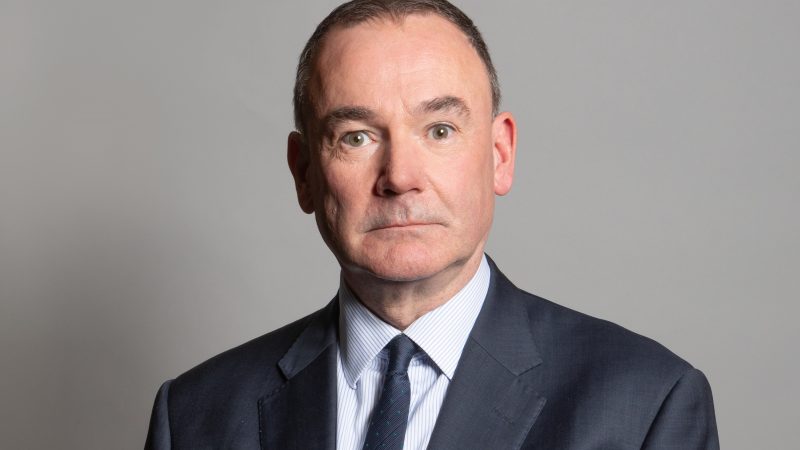
We are living through a time of extraordinary change. No part of the liberal settlement, including what was the centre, remains unaffected. In this new political era, who and what does Labour stand for? What is its purpose? In June 2020, Labour Together decided that we would try to answer these questions.
We invited over 100 policy advisers, academics, journalists and think tank experts, along with Labour mayors, councillors and MPs, to discuss Labour’s political renewal. Ten working groups produced over 50 papers in 40 webinars. The result of this work is Labour’s Covenant, which we publish today. You can download it here. To begin a debate about it, we are running a series of discussions. You can sign up for discussions here.
In times of political crisis, concepts that were once considered outdated take on a new relevance. ‘Covenant’ is such a concept for renewing Labour’s political philosophy, political economy and statecraft. A covenant is an agreement between government and governed, based on reciprocity. It is a way of making political relationships and exercising consensual power that is consolidated in legitimate and sovereign institutions. In a speech earlier this month, Keir Starmer outlined Labour’s contract with the British people, which provides this basis for its political relationship with the country.
Labour’s Covenant is a plan for the reconstruction of the national economy across the UK. It includes repairing and updating the ‘everyday economy‘; reforming the central state and the union of the UK; creating strong local economies and communities; and mobilising resources to promote geo-political interests in foreign, environmental, trade, defence and security policy. This will require a new model of economic growth and social and economic development that is both state-led and from the bottom-up.
Institutions are the basis of a covenant because they embody the practices, rules and customs that structure social and economic life. Reconstructing the national economy will include regional banks that lend exclusively inside their area; a national system of apprenticeships and vocational colleges, bound by a social partnership between unions, employers’ associations, local authorities and ministries, and including a focus on improving leadership in business and public services; the reform of corporate governance in companies with more than 50 employees, with at least two elected employees sitting on the board, and similar representation on remuneration committees; a system of immigration that balances the needs of the country with respect for, and the rights of, migrant workers; and reform of the tax system, prioritising asset wealth rather than incomes for taxation, with capital gains tax paid at income tax rates.
The primary purpose of the economy is to secure the supply of basic goods and services that sustain everyday life: the food we eat, the homes we live in, the energy we use and the care we receive. This is the everyday economy. It employs at least 40% of the workforce in England and Wales and everyone, wherever they live, participates in it.
The everyday economy provides the means for restoring the security of family life. This will involve major policy programmes across ministerial briefs: new social housing, land reform and a better regulation of the private rented sector to reverse the privatisation of housing policy; a ten-year strategy to invest in family life, increasing opportunities for mothers and fathers to spend time at home, and developing a system of childcare focused on the needs of children; structural reform of the adult care system and a partnership between the NHS and local authorities; and a proper mental health care system to tackle the rise of chronic illnesses such as depression and anxiety.
Repairing and updating the everyday economy will help to regenerate local cultures, associations and community leadership. Local democracy needs sufficient economic powers to play its part in community wealth building. National reconstruction means reprioritising the productive economy locally and innovating ways of more closely aligning economic ownership and decision making with local communities. This devolution of resources and power in England must be part of a constitutional change in which English laws are made by English MPs and an English democratic polity is recognised.
An environmental covenant recognises that human beings are both of nature and have responsibility for it. National reconstruction involves adaptation to and the lessening of the impact of climate change, alongside a strategy for pro-worker and pro-nature farming. Green manufacturing will be a combination of high-intensity, high-value-added green industry and small-scale artisans with local materials and short supply chains. A ‘national nature service’, with a strong local input, could provide a vocational education in jobs engaged with the land. And re-cultivating distinctive places means building houses at human scale, with local materials and in vernacular styles.
Labour has always been the party of patriotism and internationalism. The UK’s geopolitical position means prioritising security in Europe, a bond of friendship with the US, and agility in building alliances with emerging blocs of nations. These require a strong, ready military capability and a continuing global pre-eminence in soft power. Labour’s foreign policy would link trade and foreign investment to domestic priorities of reducing UK regional disparities by aligning with the plan for national reconstruction.
National reconstruction will prioritise work and wages, families and local places. These are the building blocks for a more secure and prosperous society. Covenant puts the practice of reciprocity at the centre of political economy and social reform. The country is entering a new political era. Labour’s Covenant sets out how Labour can begin renewing itself politically, drawing on its own history and traditions.




More from LabourList
‘Energy efficiency changes must work for older private renters’
‘Labour’s creative destruction dilemma’
Economic stability for an uncertain world: Spring Statement 2026